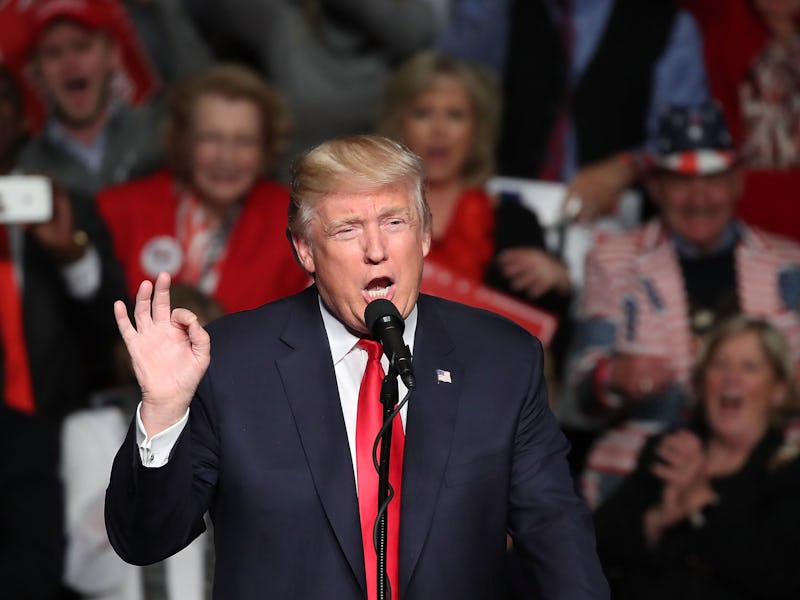Trump to Meet With Intelligence Officials About Russian Hacking
Intelligence officials will release a report early next week.

President-elect Donald Trump will meet with intelligence officials on Friday to discuss Russia’s interference in the 2016 election.
Intelligence officials will likely talk about how to respond to cyberattacks and misinformation, and the role they played in the election. They briefed the Senate Armed Services Committee Thursday, and they said they will release a report early next week, which will include Russia’s motives for the hacking.
Director of National Intelligence James Clapper said that Russia has “assumed an even more aggressive cyber posture” by increasing cyber espionage operations, leaking data, and more. Since then, President Barack Obama has put sanctions on Russia.
Trump spoke to The New York Times three hours before the meeting, where he repeatedly criticized the focus on cyber attacks from Russia. “China, relatively recently, hacked 20 million government names,” Trump said to the Times, referring to the hacking of the Office of Personnel Management in 2014 and 2015. “How come nobody even talks about that? This is a political witch hunt.”
But hacking the Democratic National Committee servers was only part of it. Russia also used other means to interfere with the U.S. election. With more available channels to spread misinformation in the cyberspace, such as social media, propaganda and fake news also played a role in the election.
“All of these types of cyber operations have the power to chip away at public trust and confidence in our information services and institutions,” Clapper said.
Handling cyberattacks will increasingly become a more critical issue for the U.S. government, and dealing with misinformation is an important aspect. Trump’s national security adviser pick, Michael T. Flynn, has a history of spreading conspiracy theories and fake news on his Twitter account.
To deal with cyberattacks, it’s not as easy as just launching a counter cyber attack of our own. Clapper says the government should consider all instruments of national power, and typically noncyber tools, such as sanctions, have been more effective.
“We also need to be prepared for adversary retaliation, which may not be as surgical either due to the adversary’s skill or the inherent difficulty in calibrating effect and impact of cyber tools,” Clapper said. “That’s why using cyber to counter cyber attacks risks unintended consequences.”
Defense Undersecretary for Intelligence Marcell Lettre II, Director of National Intelligence James Clapper and United States Cyber Command and National Security Agency Director Admiral Michael Rogers testify before the Senate Armed Services Committee on Thursday.
Meanwhile, China continues to conduct cyber espionage against the American government and companies, and Iran and North Korea are increasing capabilities in cyber attacks, intelligence officials said.
Democratic Senator Claire McCaskill expressed concerns over Trump undermining Americans’ confidence in the intelligence community and disparaging their findings. For example, on Thursday night, Trump tweeted, “So how and why are they so sure about hacking if they never even requested an examination of the computer servers? What is going on?” He also tweeted statements from WikiLeaks founder Julian Assange, who intelligence officials have said should not be given credibility.
“The notion that the elected — soon elected leader of this country would put Julian Assange on a pedestal compared to the men and women of the intelligence community and the military that is so deeply embedded in the intelligence community, I think it should bring about a hue and cry,” Senator McCaskill said.
Looking forward, intelligence officials emphasize the importance of hiring and training cyber talent in the intelligence community.
“The biggest frustration to me is speed, speed, speed,” said Michael S. Rogers, director of the National Security Agency. “We have got to get faster, we’ve got to be more agile…We can’t be bound by history and tradition here, so to speak. We have to be willing to look at alternatives.”